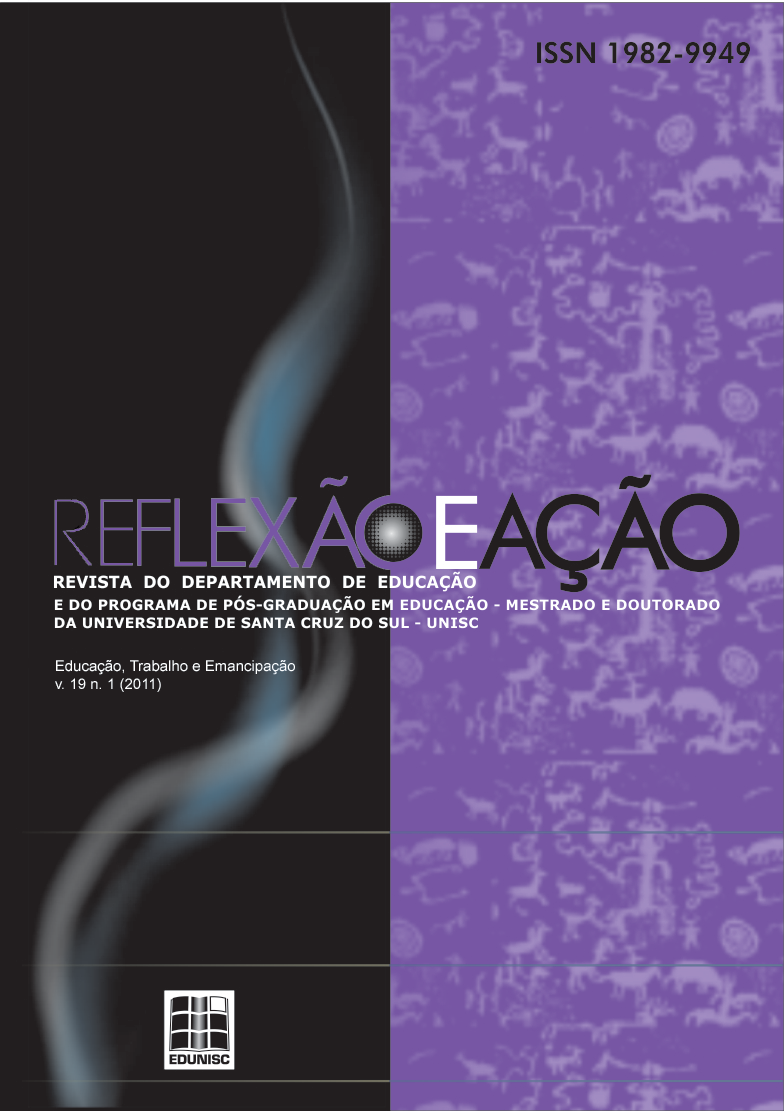JOVENS, TRABALHO E EDUCAÇÃO: PROCESSOS IDENTITÁRIOS NA CONTEMPORANEIDADE
DOI:
https://doi.org/10.17058/rea.v19i1.1988Resumen
Este texto trata-se dos resultados de uma investigação com jovens da ilha de Santa Catarina (Florianópolis) que passaram por cursos de formação profissional e vivem diversas situações de trabalho e educação. Como os jovens constroem suas identidades nestes espaços como o trabalho e a escola e quais os sentidos que emergem deles e a experiência com o desemprego constitui a problemática central deste estudo. O objetivo foi analisar a heterogeneidade vivida pelos jovens na relação que estabelecem com o trabalho e a educação, os sentidos do trabalho e a experiência com o desemprego na atualidade. A abordagem é de natureza qualitativa em que foram realizadas entrevistas semi-estruturadas com oito jovens (quatro homens e quatro mulheres). Os resultados mostram que os jovens se constroem como sujeitos através de diversas experiências numa relação processual dinâmica. A dimensão que o trabalho ocupa em suas vidas aparece como fundamental em suas vivências. A experiência com o desemprego mostra as oscilações, flutuações, inconstâncias, inseguranças e movimentos circundantes de continuidades e descontinuidades diante das transformações do mundo do trabalho. A diversidade dos sentidos do trabalho é caracterizada pela complexidade da própria identidade sempre em constituição, em razão de o mundo estar em constante mudança. Foram apreendidos como fios que se conectam e se entrecruzam, dependendo de cada contexto que os jovens vivenciam. As escolhas e incertezas ficam entre o real, o possível e o desejado quanto a seus projetos educacionais e laborais. Palavras-chave – Jovens, identidade, trabalho, educação, ilha de Santa CatarinaDescargas
##submission.downloads##
Publicado
Cómo citar
Número
Sección
Licencia
El envío de originales a este periódico implica la transferencia, por parte de los(las) autores/as, de los derechos de publicación impresa y digital. Los derechos de autor para los artículos publicados son del(la) autor/a, con derechos del periódico sobre la primera publicación. Los(las) autores/as solo podrán utilizar los mismos resultados en otras publicaciones indicando claramente este periódico como medio de publicación original. En virtud de ser un periódico de acceso abierto, se permite el uso gratuito de los artículos en aplicaciones educacionales y científicas siempre y cuando se cite la fuente conforme la licencia CC-BY de Creative Commons.
 Creative Commons Atribuição 4.0 Internacional.
Creative Commons Atribuição 4.0 Internacional.


